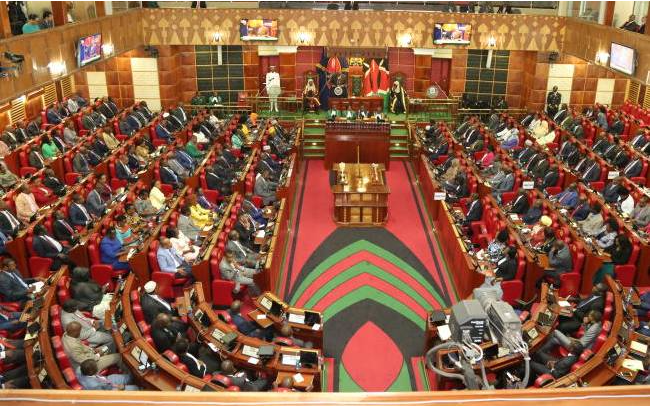The National Assembly has asked the High Court to dismiss a petition filed by the Law Society of Kenya (LSK) seeking to block enactment of the Statutory Instruments (Amendment) Bill, 2024.
In an affidavit before court, the National Assembly argues that the petition has been filed prematurely as the Bill in question is still before the Senate awaiting the Second Reading, following its passage in the National Assembly.
This, argues the National Assembly, violates the doctrine of ripeness which prohibits the court from entertaining issues prematurely when they are still abstract.
“The petitioner can still present its views before the Senate Justice, Legal Affairs and Human Rights Committee. Hence the petitioner has brought the Petition prematurely before utilizing the available legislative alternatives available in the Senate where the impugned Bill is being considered,” reads the affidavit by the National Assembly.
Further, the National Assembly argues that the LSK is making an attempt to manipulate the court, by erroneously citing a past judgement without a complete record of the facts or proper context to the present case.
The said judgement cited by the petitioner relates to a verdict made by the High Court on the Finance Act, 2023, which the National Assembly now argues did not prohibit it from undertaking its legislative functions, including amendment and repeal of law pursuant to article 95(3) of the Constitution.
In the petition, LSK claims that the Bill is a mischief to ensure that statutory instruments do not expire automatically 10 years after their commencement as is presently the law.
As a result of this, the petitioner claims may see some of the statutory instruments that were due to expire on the 10th anniversary saved with the potential to subsist in perpetuity.
However, the National Assembly argues that contrary to this assertion, a statutory instrument can be amended, repealed or replaced by a regulatory making authority as provided for under section 24(3) of the Statutory Instruments Act.
“This Court ought not to grant the orders sought in this Petition since the issues raised are premature. Furthermore, the petitioner has not adduced any cogent evidence to demonstrate to this Honourable Court that any right had been infringed by the Bill,” argues the National Assembly.
The case will be heard on October 2, 2024.



